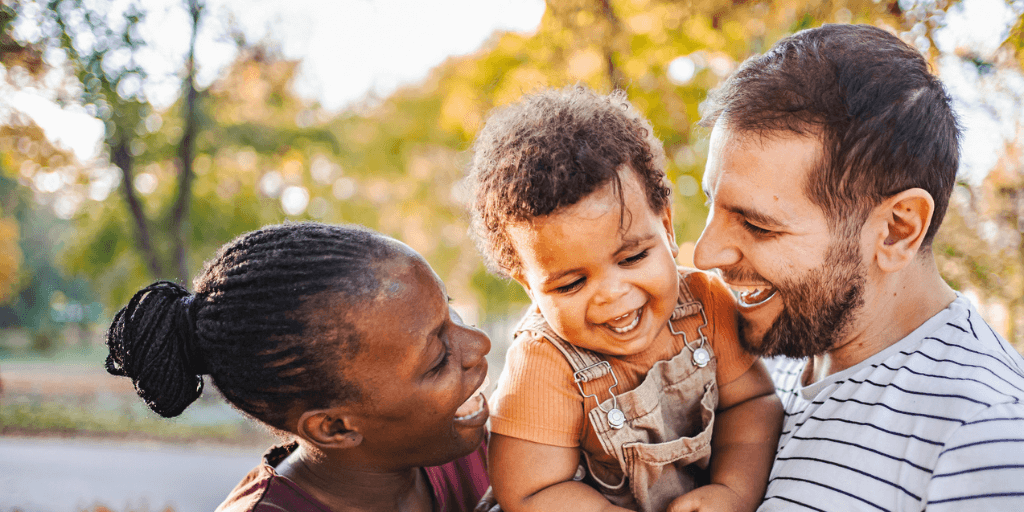
Every act of love counts: a crucial message for families affected by trauma
‘Every act of love counts: a crucial message for families affected by trauma’ blog article was written by Hanif Reza Jaberipour, Senior Advisor, Parenting and Early Years Program at Australian Childhood Foundation.
It is scientifically proven that young brains are highly sensitive to experience. But how can we communicate the wisdom behind this fact to parents? In the Bringing Up Great Kids program, an experiential activity illustrates how unhealthy connections form in the brain and how nurturing experiences can help repair it.
The facilitator starts by briefly explaining that early experiences and the environment in which children live strongly influence their brain development, playing a critical role in shaping its structure.
Supportive, caring, and consistent relationships between children and parents are essential to healthy brain development. The human brain can only grow in relationships with other human brains; it is the interaction between parents and their child that literally grows their brain. Healthy brains develop through interactions with people who love them.
Then, to start the activity, the facilitator asks participants to stand in a circle, each person representing a neuron. Holding a ball of wool, the facilitator releases a length of yarn while keeping hold of the end, then uses prompts to guide the activity.
For example, they might start by asking, “What about the brains of children who have had repeated experiences of rough handling, of seeing frightening faces, or hearing angry voices? What about a baby who is sometimes cuddled and fed but left alone and hungry at other times?” The facilitator throws the wool to a participant, identifying an unhealthy connection.
The participant who catches the wool lets out more yarn, holds onto it, and throws the ball to someone else, identifying another potentially unhealthy connection in a child’s brain.
This continues until each participant has contributed, forming a neuronal network symbolising a traumatised brain with negative messages about self, relationships, and the world.
But this is not the end of the activity. We want to give the activity a happy ending! The facilitator then asks, “What if the family’s situation changes? Their financial circumstances improve, or the disease is over, or they are no longer living with the violent adult? Or perhaps the child spends a few hours each day in childcare with caring and nurturing educators?”
With this change, the toddler would begin to experience more positive, nurturing interactions.
Then, a second round of the activity begins this time with a different colour of wool, symbolising positive experiences. Participants name positive interactions as they throw the wool, continuing until a new neuronal network forms.
The facilitator explains that repeated positive experiences create strong templates, or “blueprints,” in the brain, connecting and integrating its areas. Through repeated positive relationship experiences, children form templates with important messages, e.g. “I am a good person,” “I am loved,” “Relationships are fun and helpful,” and “The world is safe.”
This powerful experiential activity visually illustrates the brain’s repair process, which can contribute to healing trauma. In my experience, the most crucial message for facilitators to highlight is that every positive interaction between parents or caregivers and the child matters. Whether it’s a cuddle, a kiss, a kind look, a thumbs up, a meal, a song, a picture book, or helping the child sleep—science shows each of these nurturing interactions is recorded and makes a difference.
There’s no act of love and kindness too small; none goes unnoticed. I work hard to reassure parents that, regardless of their capacity, every kind word and loving act shapes their child’s future and promotes healthy brain development.
I have seen countless smiles, heard sighs of relief, and noticed sparks of hope in parents’ eyes after hearing this reassurance.
Learn more about the Bringing Up Great Kids (BUGK) Program
Bringing Up Great Kids (BUGK) is an integrated suite of activities and tools that are unique and offer all parents and carers a fresh way to understand and enact relationships with their children. It focuses on building positive and nurturing relationships between parents and their children, while also aiming to support parents to review and enhance their patterns of communication with their children to promote more respectful interactions and encourage the development of children’s positive self-identity.
